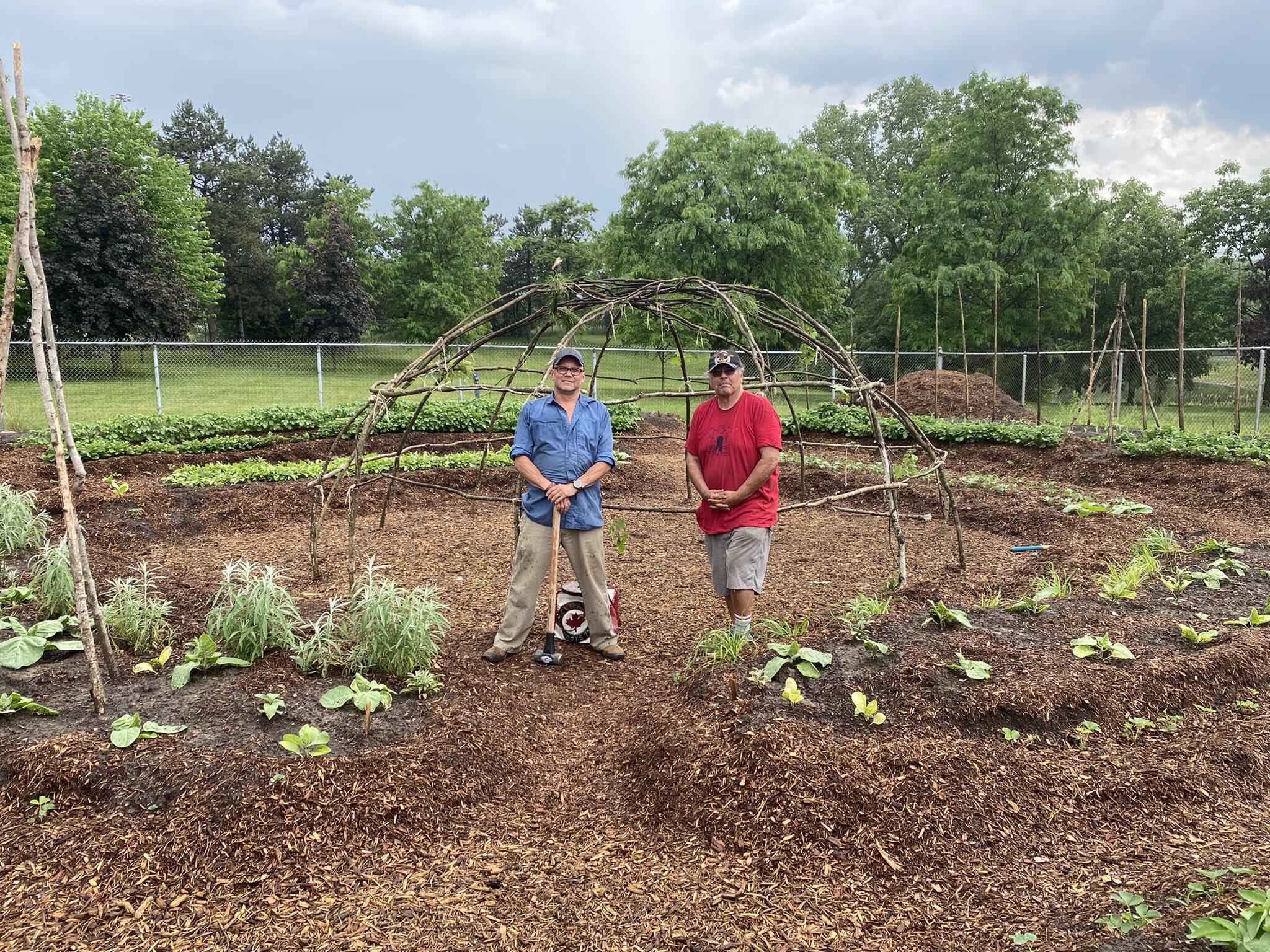Conestoga’s Indigenous Studies program and Aboriginal Services (Be-Dah-Bin Gamik) have collaborated to develop the Indigenous Studies Teaching Garden at the college’s Kitchener - Doon campus.

Indigenous Studies and Aboriginal Services have collaborated to develop a teaching garden at the college’s Kitchener - Doon campus. L-R: Clarence Cachagee, coordinator at Aboriginal Services; and Myeengun Henry, manager of Aboriginal Services.
Located in an outdoor space by the southeast corner of the A-wing, the garden will serve as a living classroom to help build cross-cultural relationships and a deeper understanding of Indigenous land-based practices and knowledge.
“We’re creating a space to speak about food and medicine as a way of (re)encountering culture and language,” said Garrison McCleary, Indigenous Studies professor and garden director. “It’ll be a space for students and the college community to engage with Indigenous plants and explore traditional knowledge.”
The garden covers an area close to 4,000 square feet and shaped to resemble a medicine wheel with three concentric circles and a lodge made from maple and willow saplings in the centre. Planting began in early May to include sacred medicines and Iocal Indigenous foods, such as tobacco, sweetgrass, corn, bush beans and squash. The garden also includes non-local Indigenous foods, like Peruvian purple potatoes, to help draw connections between food systems and trade networks.
The initiative is part of a larger project at Conestoga focused on the revitalization of land, language and culture through the mobilization and dissemination of Indigenous knowledge. Supported through the College and Community Social Innovation Fund, Conestoga will collaborate with a network of local organizations on a range of initiatives designed to build knowledge and understanding of Indigenous cultures and practices and provide opportunities for community participation and engagement.
Plans for the project include relationship building and knowledge exchange with Elders, workshops and the development of online resources. The garden will serve as an integral piece, having practical and tangible impacts on the community through seed-saving workshops, traditional food preparation demonstrations, and donations of produce to the Cambridge Self-Help Food Bank.
“We’ve lost a lot of our knowledge and we often see a one-sided view of history and education,” said Myeengun Henry, manager of Aboriginal Services. “The garden will allow our students and the community to get their hands dirty and help understand how to sustain Mother Earth and how to utilize the gifts she has. It will be a spiritual thing, not just an educational thing, and a discovery of all the things we knew before.”
In addition to community engagement, the garden will be used by Be-Dah-Bin Gamik to provide student support and as a living classroom by the Indigenous Studies program currently in development through the college’s School of Interdisciplinary Studies.
Conestoga’s Be-Dah-Bin Gamik, a Place of New Beginnings, provides services and ongoing supports for Indigenous students to assist with a smooth transition to college life. Services include a range of social and cultural events and activities, traditional counselling, and Elders-in-Residence programs.
For more information about Indigenous Studies and the teaching garden, contact Garrison McCleary.
